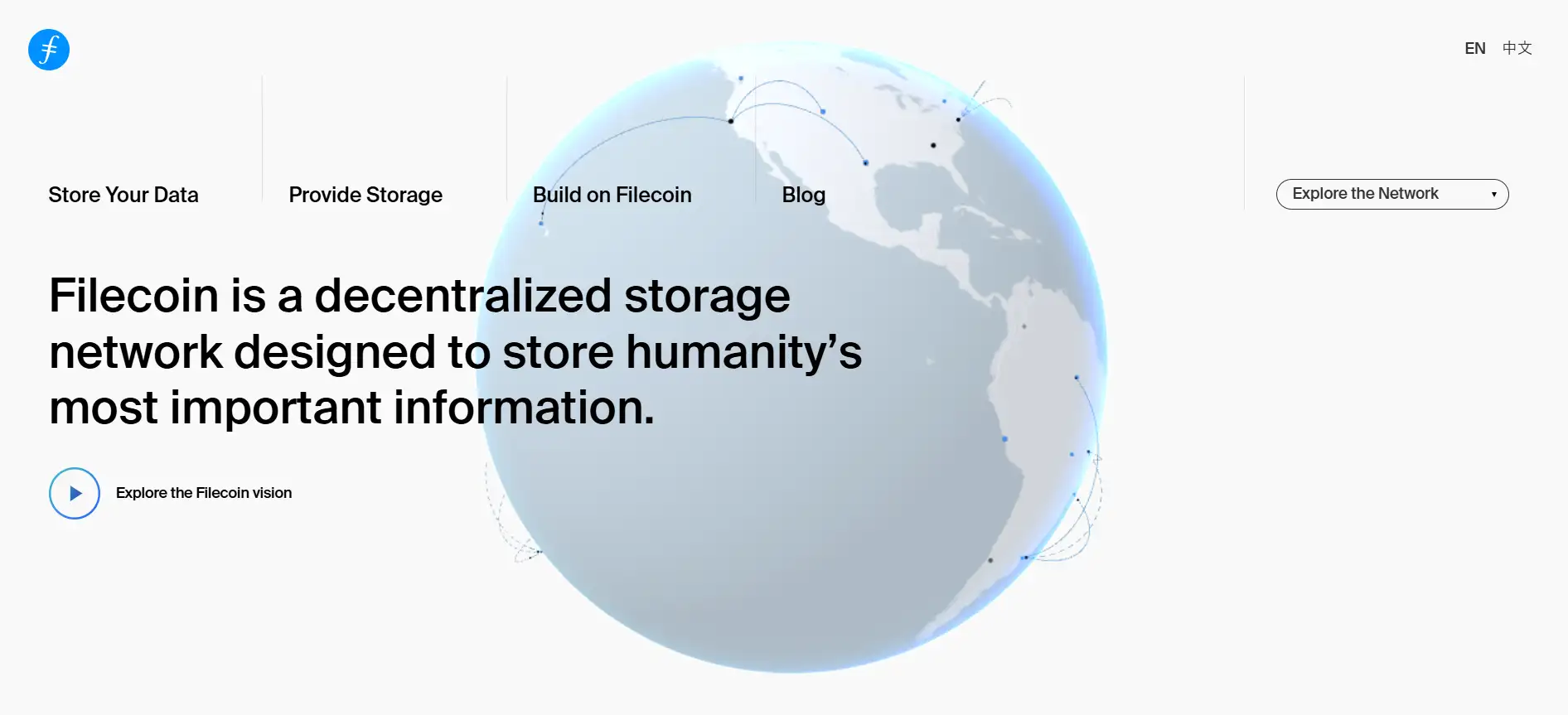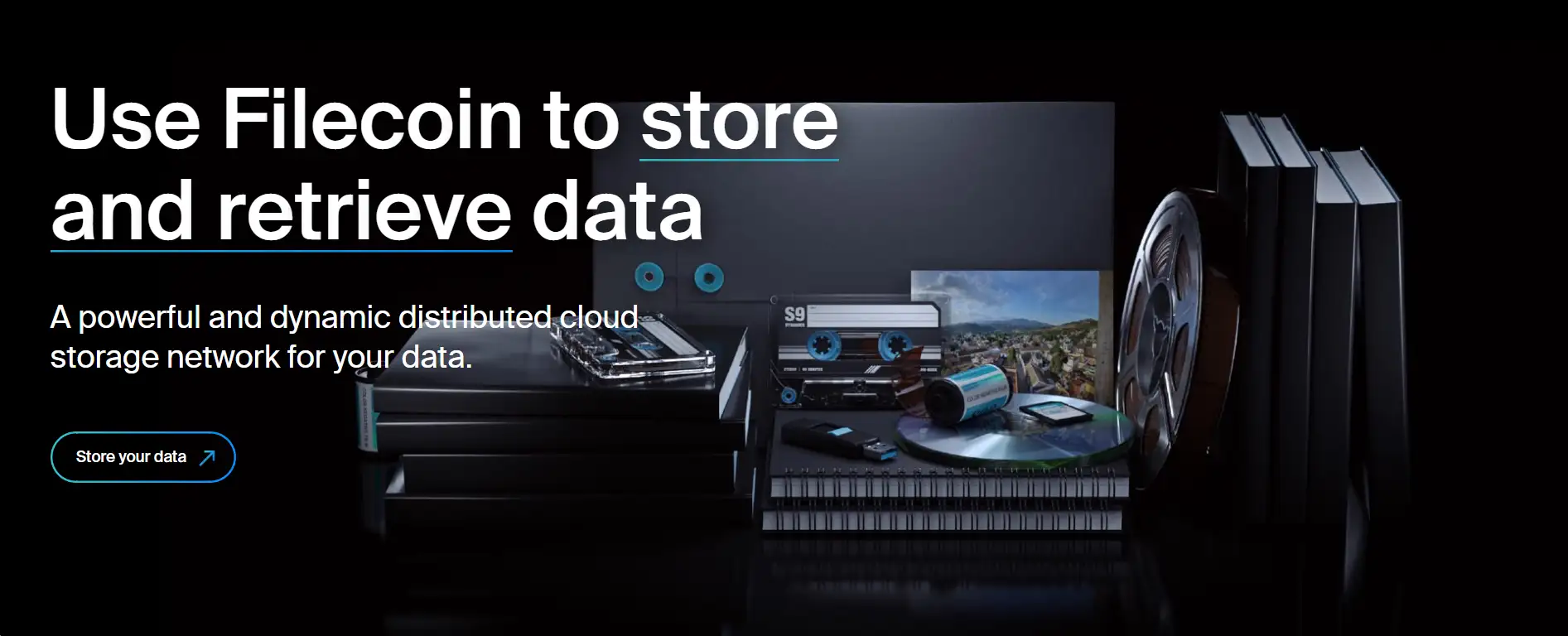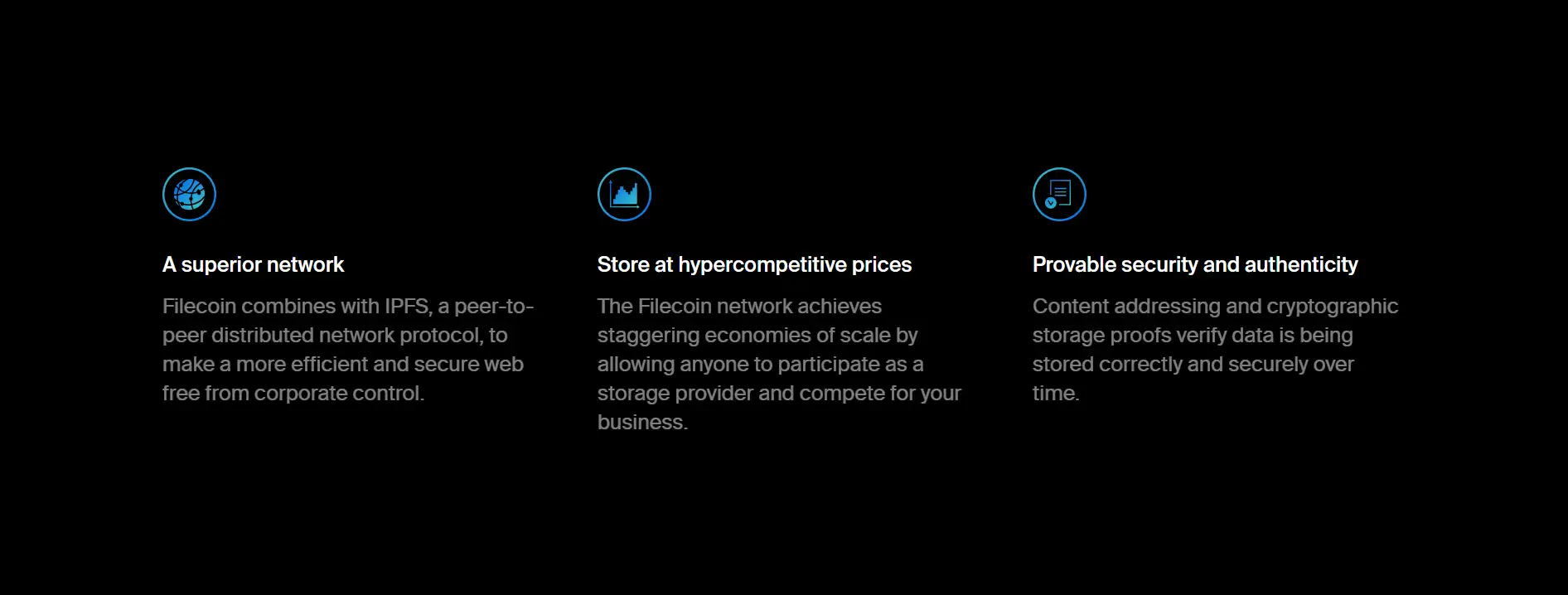About Filecoin
Filecoin is a decentralized, open-source cloud storage marketplace and protocol built to store humanity’s most important data. It transforms unused storage into an economic opportunity for individuals and organizations by enabling them to contribute to and profit from a global network. Backed by the InterPlanetary File System (IPFS), Filecoin offers verifiable storage backed by cryptographic proofs.
Designed for the era of Web3, Filecoin is more than just a decentralized cloud—it’s a foundational layer for secure, scalable, and programmatically accessible storage. Developers, enterprises, researchers, and governments use Filecoin to build dApps, host public datasets, and launch storage-native smart contracts through the Filecoin Virtual Machine (FVM).
Filecoin was developed by Protocol Labs to answer a pressing need in the decentralized internet: persistent, verifiable, and cost-effective storage at global scale. Traditional cloud solutions rely on centralized infrastructure, which presents security, privacy, and censorship challenges. Filecoin replaces this model with a trustless network of thousands of independent storage providers that compete in an open marketplace.
Powered by cryptographic proofs such as Proof-of-Spacetime and Proof-of-Replication, Filecoin ensures that data is stored correctly and verifiably over time. These proofs are enforced by the Filecoin blockchain, which continuously verifies that storage providers are meeting their obligations. This builds an unprecedented level of trust into digital storage, especially for critical datasets such as scientific research, public media archives, and civic records.
One of Filecoin’s key advantages is its hypercompetitive pricing. Unlike centralized cloud providers with rigid pricing models, Filecoin’s decentralized network allows providers to bid for your data storage, dramatically reducing costs. Projects like Wikipedia, OpenStreetMap, and Project Gutenberg have adopted Filecoin to ensure the longevity and availability of their datasets.
The introduction of the Filecoin Virtual Machine (FVM) has opened up new possibilities for programmable storage. Developers can now deploy smart contracts to govern storage deals, automate retrieval logic, or create decentralized CDNs. This positions Filecoin as a powerful alternative to platforms like Arweave and Storj, offering greater flexibility, broader use cases, and deeper integration with the broader Web3 ecosystem.
Filecoin offers a wide array of benefits and features that distinguish it as a leading decentralized storage protocol:
- Provable Storage: Advanced cryptographic proofs (Proof-of-Spacetime, Proof-of-Replication) ensure your data is stored correctly and securely over time.
- Hypercompetitive Pricing: Storage providers compete in a global marketplace, reducing the cost of cloud storage dramatically.
- Built-In Incentives: Token economics reward participants for storing data, verifying proofs, and building on the network.
- Filecoin Virtual Machine (FVM): Deploy smart contracts to manage storage deals, automate workflows, and mediate data transactions.
- Integration with IPFS: Seamlessly bridge content-addressed data from IPFS into long-term, persistent Filecoin storage.
- Open Source Ecosystem: Contribute or build using open tools, libraries, and community-led infrastructure available on GitHub.
- Scalable Storage: Ideal for public datasets, NFTs, AI models, metaverse assets, and time-stamped archives.
- Community-Powered: Filecoin is driven by a global network of developers, researchers, miners, and end users.
Getting started with Filecoin is simple, whether you’re storing data, developing apps, or becoming a storage provider:
- Explore the Network: Visit the Filecoin website to understand how the protocol works and the benefits it offers.
- Store Your Data: Use IPFS or compatible gateways to upload your files, then anchor them into persistent storage using Filecoin.
- Deploy Smart Contracts: Explore the Filecoin Virtual Machine to build programmable storage applications and decentralized CDNs.
- Become a Storage Provider: Set up a node and start offering your unused disk space to clients globally through the storage market.
- Participate in the Community: Join discussions via Discord, the Forum, or explore open grants and events.
- Use Developer Tools: Access the complete suite of libraries, APIs, and SDKs via the Filecoin Docs to build your first Web3 storage dApp.
- Apply for Grants: Filecoin offers generous ecosystem funding for tools, infrastructure, education, and public goods.
Filecoin FAQ
Filecoin uses two advanced cryptographic proofs: Proof-of-Spacetime and Proof-of-Replication. These ensure that storage providers are genuinely storing the data they committed to, and doing so over the full duration of the storage contract. The Filecoin blockchain verifies these proofs regularly and can penalize providers that fail to meet requirements. This creates a secure and trustless system for long-term data reliability. Learn more at Filecoin.
The Filecoin Virtual Machine (FVM) is a powerful smart contract layer that enables programmable storage. Developers can build contracts that govern storage deals, automate retrieval processes, or even create algorithmic CDNs. It opens the door to building complex dApps where data storage is managed on-chain. Explore more on how to start developing with the FVM at the Filecoin website.
Filecoin is a decentralized storage network where thousands of independent providers compete to store your data. This creates a hypercompetitive marketplace that drives costs down and avoids vendor lock-in. Unlike centralized platforms, data on Filecoin is stored with cryptographic guarantees and verified continuously. It’s also integrated with IPFS for content addressing, making it ideal for Web3 applications. Visit Filecoin to learn more.
Yes. Filecoin acts as a persistence layer for IPFS. By using tools like IPFS Pinning Services or bridges that connect IPFS content to Filecoin, you can ensure that content-addressed files are stored permanently and verifiably. This is especially useful for NFTs, public datasets, and dApps. Learn how to pin and store IPFS data through Filecoin’s documentation.
Filecoin rewards providers with FIL tokens for offering data storage, submitting valid proofs, and retrieving stored files. Providers can participate with flexible configurations and compete in the open marketplace for clients. Additionally, Filecoin offers grant programs and technical support to help new providers onboard successfully and scale their infrastructure.
You Might Also Like












